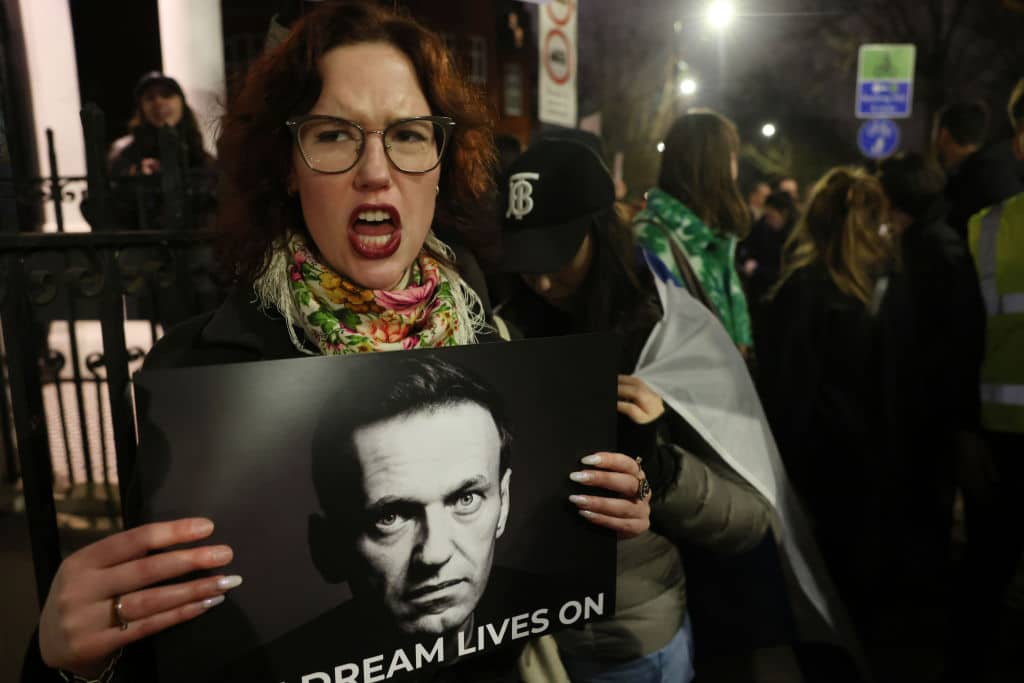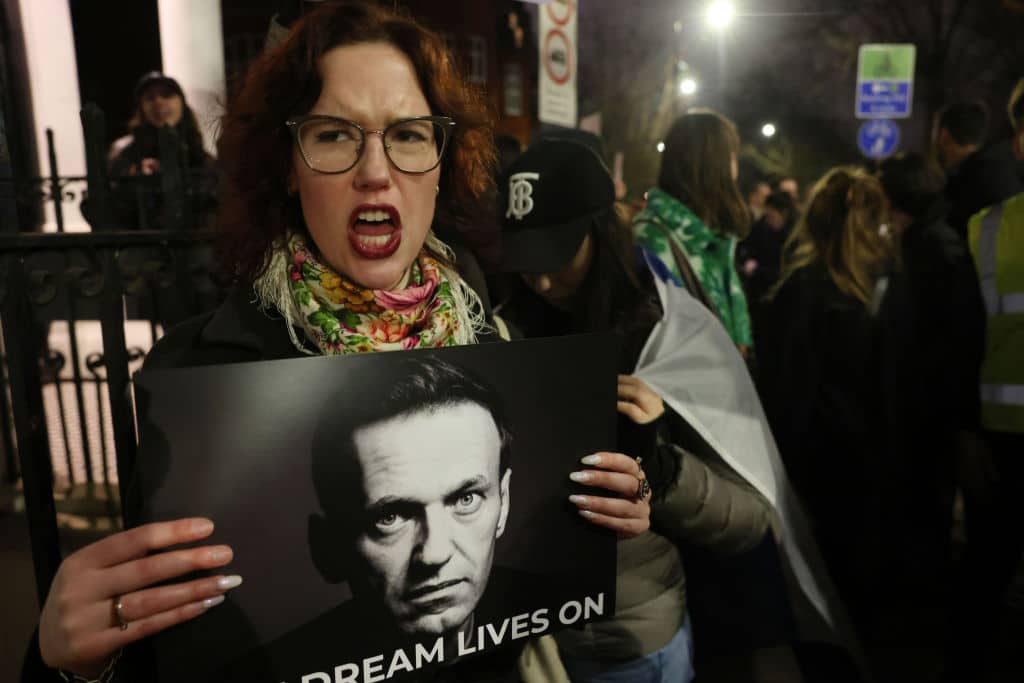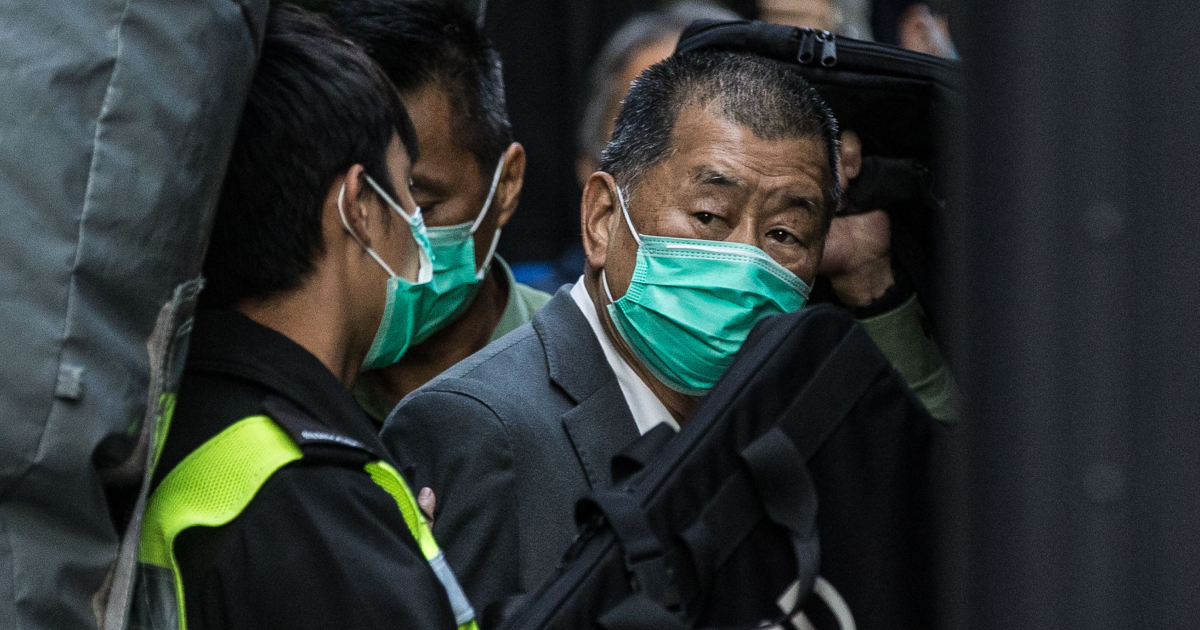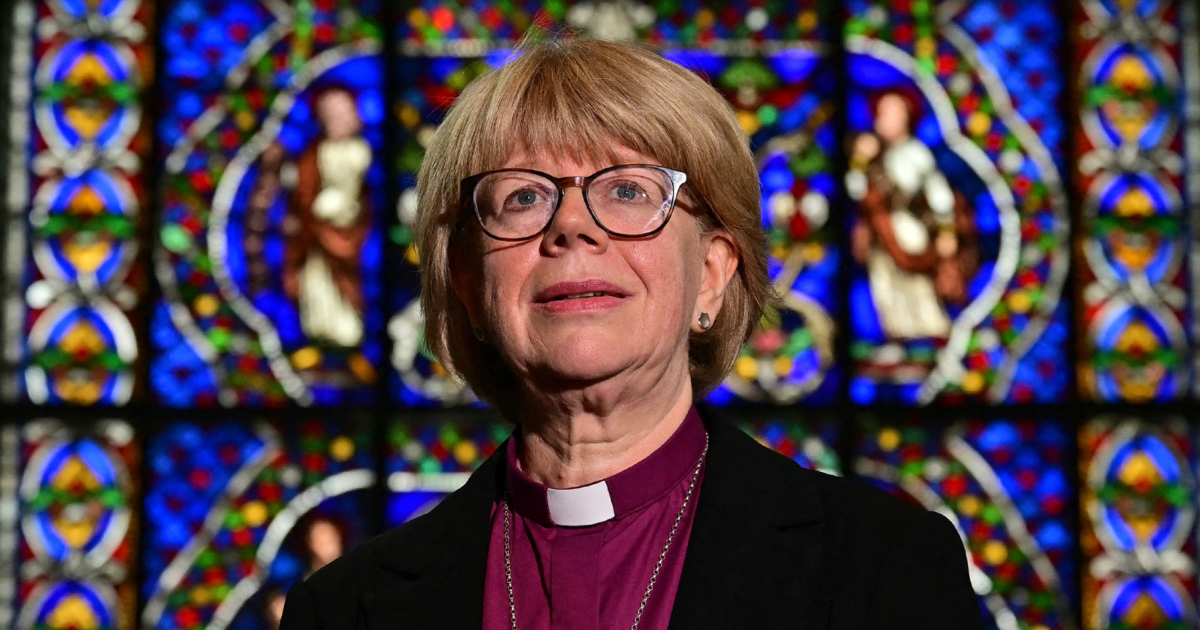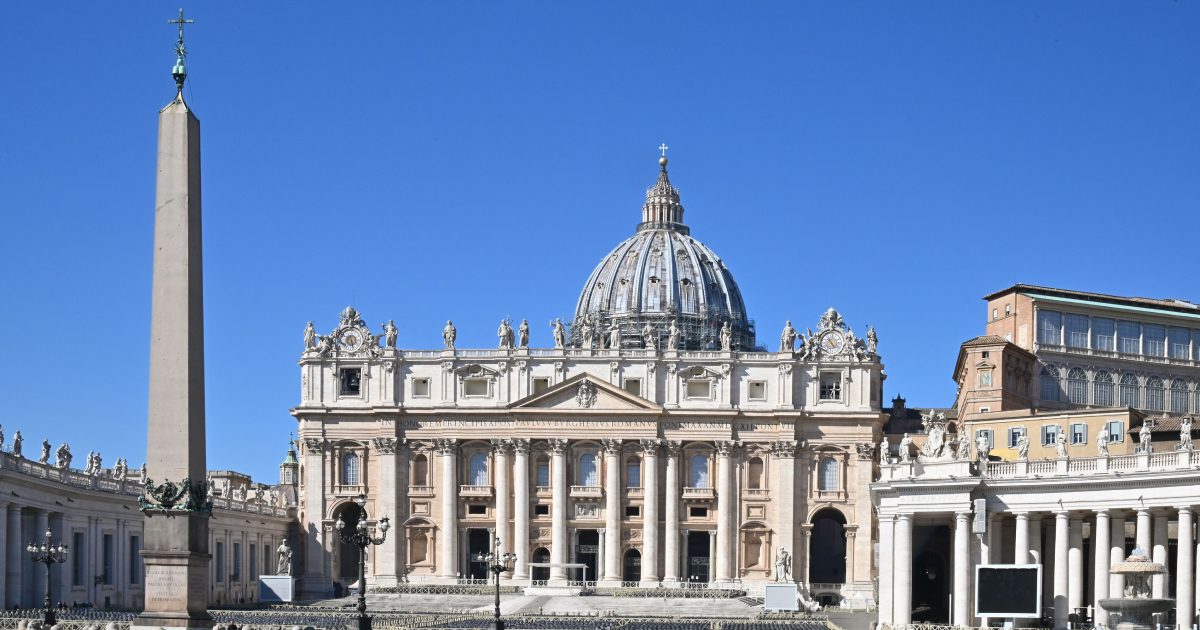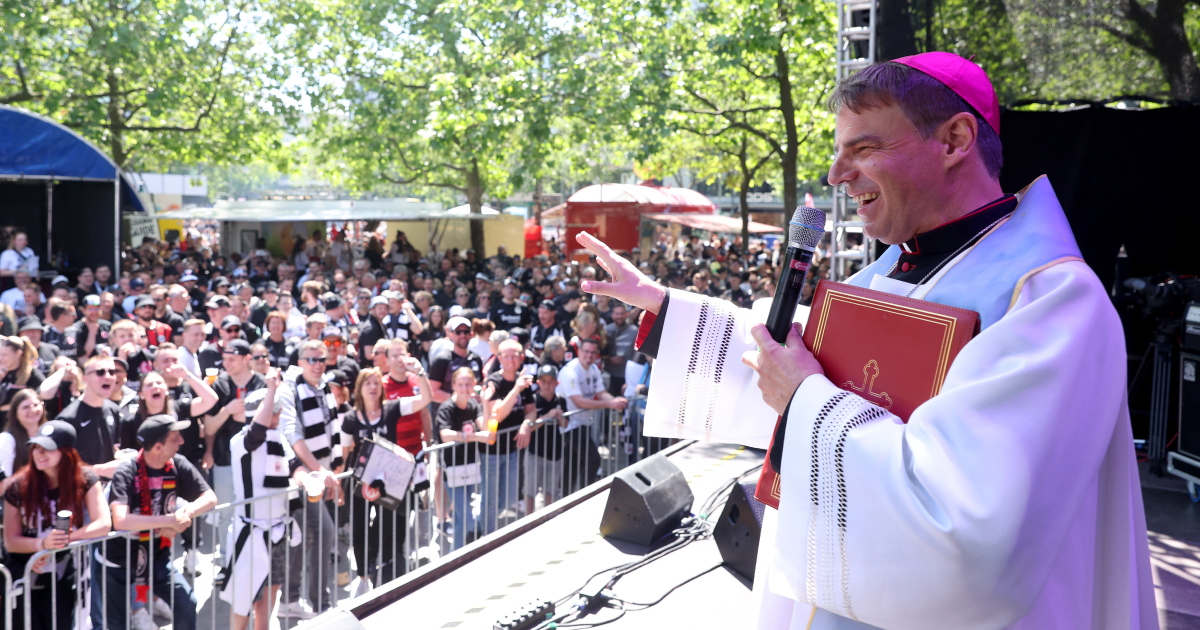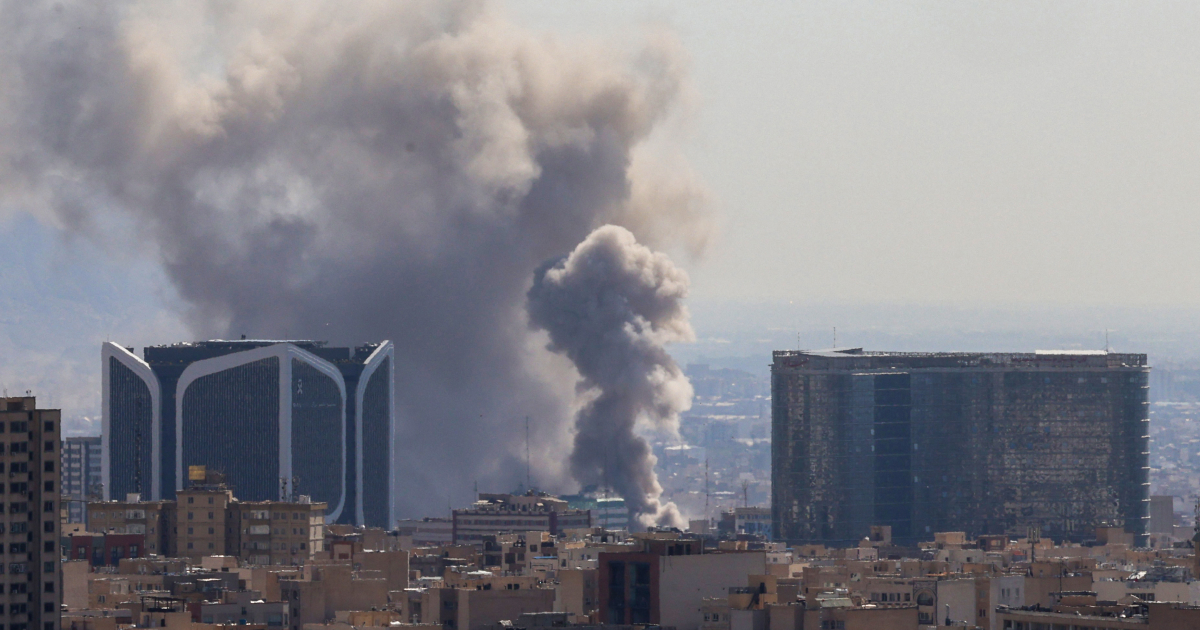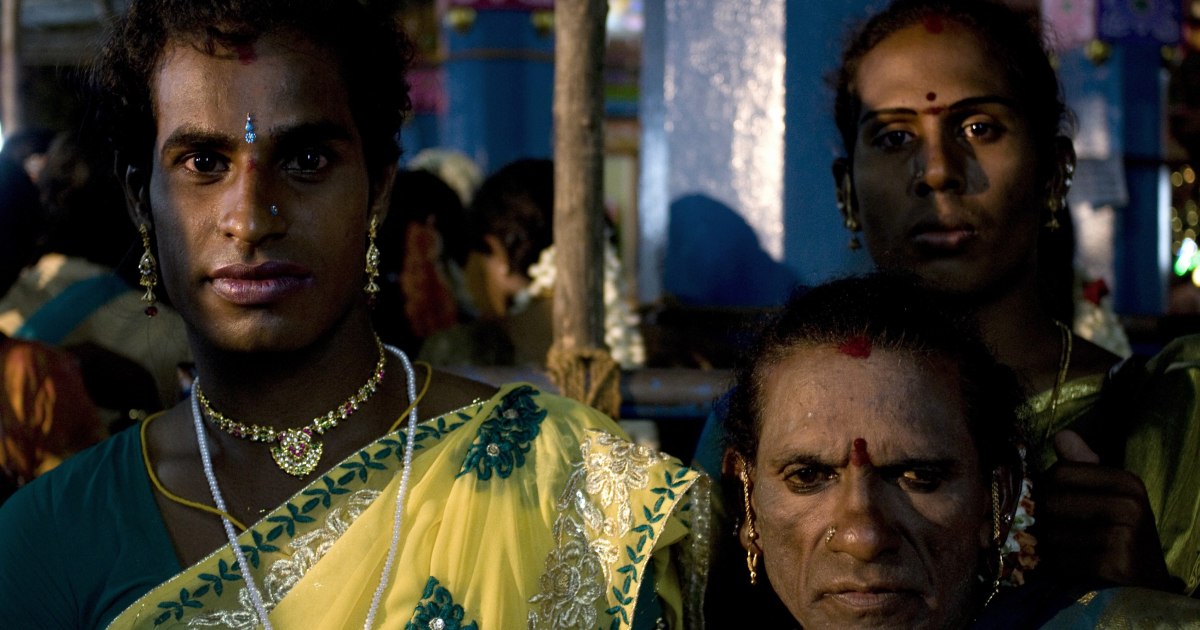The unexpected death of Russian opposition leader Alexei Navalny in mysterious circumstances at a Russian penal colony has drawn comment from around the world, especially about his mistreatment by the Russian State and Vladimir Putin.
What is often left out in such commentary, certainly by mainstream media, is the role that faith played for Navalny in his activism and opposition to Putin, and the fact that he had become a Christian.
In BBC Radio 4’s recent “Thought for the Day” on 19 February, Reverend David Wilkinson, a professor of theology and religion at St John’s College at Durham University, highlighted this less reported fact, drawing attention to when Navalny appeared in court three years ago this week to appeal his arrest after returning to Russia from exile.
During his closing statement, Navalny, a former atheist, “spoke about his Christian faith," Wilkinson says, and “highlighted the importance of the Bible in sustaining and energising his activism”.
Addressing the court, Navalny also described how his faith made his circumstances easier for him, including being able to engage in politics: “There are fewer dilemmas in my life, because there is a book in which, in general, it is more or less clearly written what action to take in every situation.”
Wilkinson highlights how Navalny quoted the words of Jesus during the Sermon on the Mount: “Blessed are those who hunger and thirst for righteousness, for they shall be satisfied.”
Known as the Beatitudes, the words spoken by Jesus on the Mount are “promises of God’s blessing on those who are vulnerable” and on those who “chose the path of vulnerability”, such as the peace makers and pure in heart, Wilkinson says.
In the months following the court trial, Navalny continued to mention his faith on his social media accounts, reports Christian Network Europe (CNE) news. In May 2021, he referred to Easter, saying: “I congratulate everyone with the best feast according to the tradition: believers (which I now am), unbelievers (which I was) and militant atheists (which I was too).”
CNE notes that not everyone was convinced of the religious nature of Navalny's conversion to Christianity, with The Moscow Times, an independent English- and Russian-language online newspaper, evaluating the expressions in a more politico-sociological context, arguing that Navalny was following a Russian intelligentsia tradition by using and quoting the Bible as a means of defence.
Though as CNE news notes, if used as a means of defence, Navalny's referencing the Bible didn’t work. Navalny's discovery of faith may have made him part of a Russian tradition, but that doesn't mean it was purely a tactical choice on his part.
"The moral vision grows organically from a religious commitment," Edward E. Ericson, a scholar and teacher of English literature at Calvin College in the US, writes in an introduction to the 2018 Vintage Classics edition of The Gulag Archipelago by Aleksandr Solzhenitsyn. "Passages in Gulag describe his move from Marx to Christ during his years of incarceration, a change of heart amplified in subsequent writings."
Ericson highlights: "Because religious faith is his bedrock conviction, the greatest impediment to appreciating and appropriating Solzhenitsyn has been the error of listening to his sad music of Russia with ears attended solely to secular wavelengths."
In Gulag, Solzhenitsyn describes the astonishing scope and reach of the Russian prison system and the authorities behind it, as well as the seeming powerlessness – though he suggests it could also be a form of indifference – of ordinary people to resist.
"We have been happily borne – or perhaps have unhappily dragged our weary way – down the long and crooked streets of our lives, past all kind of walls and fences made of rotting wood, rammed earth, brick, concrete, iron railings," Solzhenitsyn says. "We have never given a thought to what lies behind them. We have never tried to penetrate them with our vision or our understanding. But there is where the Gulag country begins, right next to us, two yards away from us."
The parallels between the experiences of Solzhenitsyn and Navalny at the hands of the Russian State and its Gulag prison system are numerous; a key difference being that Solzhenitsyn survived Stalin.
Concluding his “Thought for the Day”, Wilkinson says that while, along with others, he will “mourn” Navalny’s death, at the same time he will give "thanks for his courageous activism and faith”, adding:
"Those who 'hunger and thirst for righteousness' give me both hope and a challenge."
As a result, Wilkinson says, the death of Navalny’s raises questions in his own life:
“About how I might speak and act for those who are vulnerable,” Wilkinson says. “Even if that’s a risky thing.”
Photo: A member of the Russian diaspora chants slogans outside the Russian Embassy in London while protesting the sudden death of Alexi Navalny, London, England, 16 February 2024. (Photo by Alex McBride/Getty Images.)
The unexpected death of Russian opposition leader Alexei Navalny in mysterious circumstances at a Russian penal colony has drawn comment from around the world, especially about his mistreatment by the Russian State and Vladimir Putin.
What is often left out in such commentary, certainly by mainstream media, is the role that faith played for Navalny in his activism and opposition to Putin, and the fact that he had become a Christian.
In <em>BBC Radio 4</em>’s recent “<a href="https://www.bbc.co.uk/sounds/play/p0hct605"><mark style="background-color:rgba(0, 0, 0, 0)" class="has-inline-color has-vivid-cyan-blue-color">Thought for the Day</mark></a>” on 19 February, Reverend David Wilkinson, a professor of theology and religion at St John’s College at Durham University, highlighted this less reported fact, drawing attention to when Navalny appeared in court three years ago this week to appeal his arrest after returning to Russia from exile.
During his <a href="https://www.rightsinrussia.org/navalny-2/"><mark style="background-color:rgba(0, 0, 0, 0)" class="has-inline-color has-vivid-cyan-blue-color">closing statement</mark></a>, Navalny, a former atheist, “spoke about his Christian faith," Wilkinson says, and “highlighted the importance of the Bible in sustaining and energising his activism”.
Addressing the court, Navalny also described how his faith made his circumstances easier for him, including being able to engage in politics: “There are fewer dilemmas in my life, because there is a book [the Bible] in which, in general, it is more or less clearly written what action to take in every situation.”
Wilkinson highlights how Navalny quoted the words of Jesus during the Sermon on the Mount: “Blessed are those who hunger and thirst for righteousness, for they shall be satisfied.”<br><br>Known as the Beatitudes, the words spoken by Jesus on the Mount are “promises of God’s blessing on those who are vulnerable” and on those who “chose the path of vulnerability”, such as the peace makers and pure in heart, Wilkinson says.
In the months following the court trial, Navalny continued to mention his faith on his social media accounts, <a href="https://cne.news/article/4127-how-the-christian-faith-became-navalny-s-support-in-prison"><mark style="background-color:rgba(0, 0, 0, 0)" class="has-inline-color has-vivid-cyan-blue-color">reports</mark></a> <em>Christian Network Europe (CNE) news</em>. In May 2021, he referred to Easter, saying: “I congratulate everyone with the best feast according to the tradition: believers (which I now am), unbelievers (which I was) and militant atheists (which I was too).”
CNE notes that not everyone was convinced of the religious nature of Navalny's conversion to Christianity, with <em>The</em> <em>Moscow Times,</em> an independent English- and Russian-language online newspaper, <a href="https://www.themoscowtimes.com/2021/03/17/navalny-joins-the-ranks-of-russias-religious-dissidents-a73265"><mark style="background-color:rgba(0, 0, 0, 0)" class="has-inline-color has-vivid-cyan-blue-color">evaluating</mark></a> the expressions in a more politico-sociological context, arguing that Navalny was following a Russian intelligentsia tradition by using and quoting the Bible as a means of defence.
Though as <em>CNE news </em>notes, if used as a means of defence, Navalny's referencing the Bible didn’t work. Navalny's discovery of faith may have made him part of a Russian tradition, but that doesn't mean it was purely a tactical choice on his part.
"The moral vision grows organically from a religious commitment," Edward E. Ericson, a scholar and teacher of English literature at Calvin College in the US, writes in an introduction to the 2018 Vintage Classics edition of <em>The Gulag Archipelago</em> by Aleksandr Solzhenitsyn. "Passages in <em>Gulag</em> describe his move from Marx to Christ during his years of incarceration, a change of heart amplified in subsequent writings."<br><br>Ericson highlights: "Because religious faith is his bedrock conviction, the greatest impediment to appreciating and appropriating Solzhenitsyn has been the error of listening to his sad music of Russia with ears attended solely to secular wavelengths."<br><br>In <em>Gulag</em>, Solzhenitsyn describes the astonishing scope and reach of the Russian prison system and the authorities behind it, as well as the seeming powerlessness – though he suggests it could also be <a href="https://t.co/spQoF29DpX"><mark style="background-color:rgba(0, 0, 0, 0)" class="has-inline-color has-vivid-cyan-blue-color">a form of indifference</mark></a> – of ordinary people to resist.
"We have been happily borne – or perhaps have unhappily dragged our weary way – down the long and crooked streets of our lives, past all kind of walls and fences made of rotting wood, rammed earth, brick, concrete, iron railings," Solzhenitsyn says. "We have never given a thought to what lies behind them. We have never tried to penetrate them with our vision or our understanding. But there is where the <em>Gulag</em> country begins, right next to us, two yards away from us."
The parallels between the experiences of Solzhenitsyn and Navalny at the hands of the Russian State and its Gulag prison system are numerous; a key difference being that Solzhenitsyn survived Stalin.
Concluding his “Thought for the Day”, Wilkinson says that while, along with others, he will “mourn” Navalny’s death, at the same time he will give "thanks for his courageous activism and faith”, adding:
"Those who 'hunger and thirst for righteousness' give me both hope and a challenge."
As a result, Wilkinson says, the death of Navalny’s raises questions in his own life:<br><br>“About how I might speak and act for those who are vulnerable,” Wilkinson says. “Even if that’s a risky thing.” <br><br><em>Photo: A member of the Russian diaspora chants slogans outside the Russian Embassy in London while protesting the sudden death of Alexi Navalny, London, England, 16 February 2024. (Photo by Alex McBride/Getty Images.)</em>





